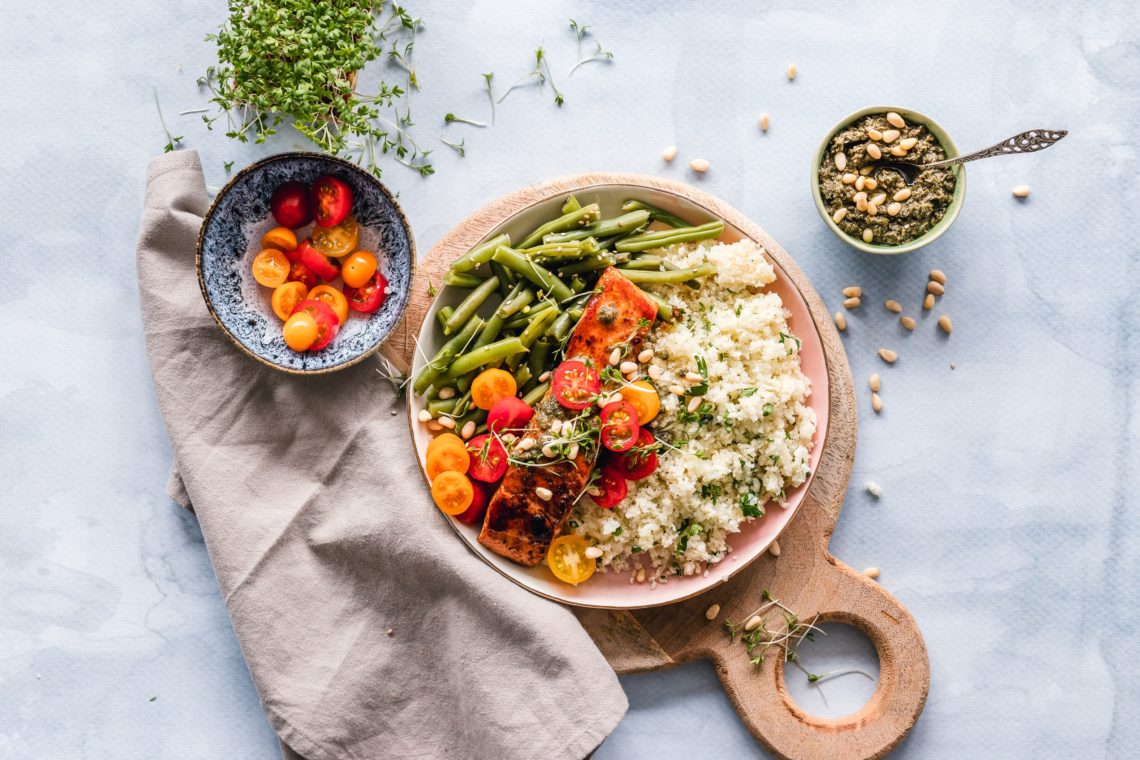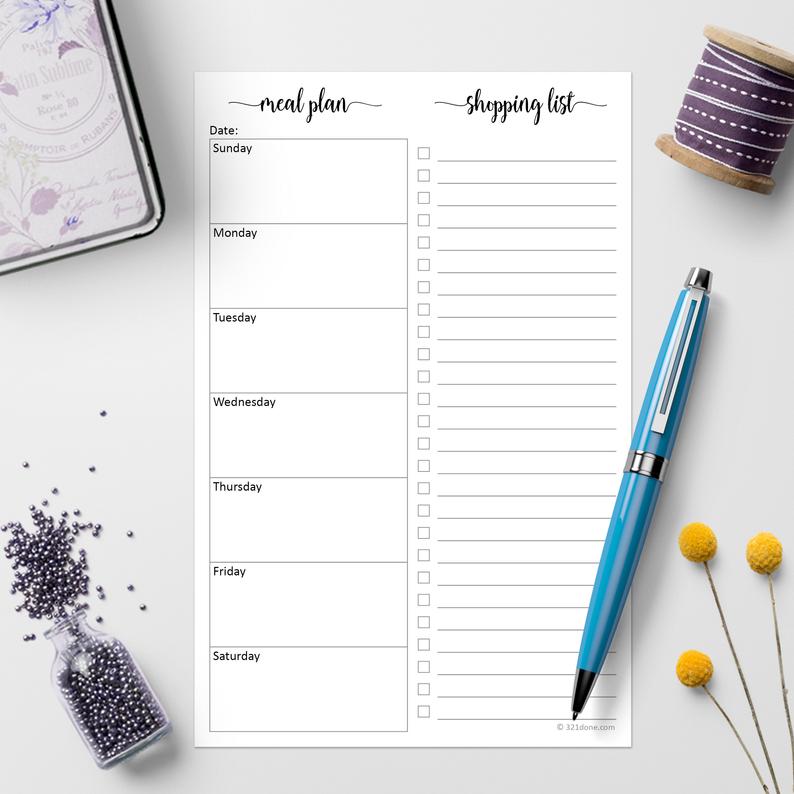
11 Smart Hacks to Save Money on Groceries
With families in America spending almost $1,300 a month in groceries, this is an easy area for a financial win. Here are 11 ways to save money on groceries and slash your expenses on your next trip to the store.
This post may contain affiliate links, which means I may earn a small commission at no extra cost to you. For more information, please see my disclosure here. Thank you for your support!
Out of curiosity, I decided to find out how much the average family spends on groceries a month. I was taken aback by the numbers! According to the USDA, the average family of 4 can spend over $1,200 a month on groceries!
Needless to say, food is a major expenditure for the average family.
In some cases, it’s the second most costly item on the budget, with the first being housing. As a result, the groceries budget is an area that can represent fast wins when it comes to saving money.
I’m sure by now you’ve heard that you shouldn’t go grocery shopping on an empty stomach, but there’s a lot more you can do to slash that supermarket bill on your next trip to the store!
Limit Your Trips to the Store
Have you ever gone to the store “only to get two items” but then end up buying a cart-full of stuff? We’ve all probably done that at some point or another. This is why I recommend to limit the number of trips you make to the supermarket.
The easiest way to do this is to get organized with your meals.
By using a Meal Planner, you can know exactly what you will need in advance.
I like the Meal Planning Notepad. It comes with 50 sheets and magnets to attach to the fridge.
Personally, I make two trips a month because that’s how I’ve budgeted my groceries.
I plan for them in advance as I know it will take me at least an hour to do the shopping plus the time it’ll take me to unpack and put everything away when I get home.
I already know how much stuff I’ll need to last me two weeks, and I make sure I get enough.
If for some reason I run out of something in between, I assess how much I need it and if there’s a way I can substitute with something else in the meantime to hold me over.
If I can’t find any other option, I do go to the store but I make it a point to only buy that one item I need.
Want to learn more about my proven budgeting method? Download my Free Guide here and learn how to painlessly cut back on spending!
Leave the Kids at Home

Kids are a joy, no doubt about it. But when you go grocery shopping, they can turn into a nightmare.
Kids are just not “designed” to withstand all the walking and decision making in a calm, collected fashion!
When you bring them alone, you’re dealing with a lot of distractions that won’t allow you to focus on the task at hand (sibling rivalries anyone?).
Not only that, but sometimes it’s reaaally hard not to give into buying them whatever trinket or candy they’re asking for this time. The googly eyes get me!
That’s why whenever I can, I go buy groceries alone. Of course, this doesn’t always work.
If you have issues arranging to go alone, try grocery shopping:
- When the kids are on a playdate
- During your lunchtime if you’re not buying a lot of things that need refrigeration
- While a trusted adult stays with the kids
At times, I’ve been able to organize a network of other moms and we’ve watched each other’s kids while we shop.
So generally speaking, get creative! Find ways to shop alone to make the most out of the time you’ll spend at the store.
Check the Weekly Ads

Whenever I’m preparing for my shopping trip, I make sure to check the weekly ads for the stores I normally visit.
Thankfully nowadays most stores post their ads online and they’re really easy to find.
Why is this important?
Because a store may be running a promotion on the things you’re planning on buying!
If their prices are comparable to other stores, it’s worth it to buy all your groceries there.
Now, remember that time is money. That’s why I don’t advocate driving all around town in search for discounts on a few items.
The time, effort, and resources you’ll spend going to different stores will eat away any potential savings.
So only if it makes absolute sense, go for it!
Buy When Things go on Sale
On a related note, as much as possible, try to buy things when they go on sale. I’ve been known to wait several weeks to buy something in anticipation of a big sale.
In fact, I apply this principle to just about everything. From cell phones to cars, I’ve bought about 95% of everything I have when there’s been a big sales push. It just works, and it guarantees that you get the most bang for your buck.
Related Posts
The Hassle Free Guide to Creating a Budget From Scratch
5 Amazing Tools to Rule Your Money This Year
How an Emergency Fund can Avoid Financial Ruin
Use Store Apps
Most stores these days have apps. You can check their latest discounts, print coupons, locate an item inside the store, save the receipts, and more.
Take the Walmart app for example. Not only can you search items by isle, but your receipt is stored in the app! If you need to return something, you can just pull up the receipt on your phone – No more paper mess!
Use Store Rewards Card or Program
If there’s a particular store you like, check if they have a loyalty or rewards program. If you routinely shop at the same store, chances are you’ll be able to accumulate rewards points quickly and save money on groceries during future trips to the store.
Use Coupons
Although extreme couponing doesn’t seem to be as popular these days, coupons are still a great way to save money on groceries.
I particularly like when I buy a product that already comes with a coupon attached to it. That’s hard to come by sometimes, so I use CouponSurfer to find deals quickly.
I find their website easier to navigate than other coupon warehouse sites. I also like that I can easily print several coupons at once by adding them to my “queue”.
By using CouponSurfer to get discounts on the items I was planning to buy anyway, I’ve been able to save a lot of money on groceries, with only a few clicks!
Buy Store Brands
When coupons are not available for the brands you love, be willing to part with them. In most cases, store brands are just as good as the brand-name items but cost a fraction of the price.
Some things I would say to stick to brand name for are:
Certain makeup items – I’ve tried some store name foundation, mascara and eyeliner and definitely don’t recommend it.
Your face is not the place to run a money-saving experiment (I’ll skip posting the pictures and spare you the pain).
Not to say that all store brand makeup is bad, but after having several disappointments, I’m sticking to name brand for this one.
Toothbrushes – This is another item that I recommend getting a decent brand for. As I’ve found out, not all toothbrushes are created equal, and my gums have paid the price of cheaply-made brushes.
Kid’s shoes – Although you can get the Walmart brand shoes for about $10, if you have active kids, in my experience, they’ll only last you a couple of months. They’ll cost you more than if you had bought a $40 pair that will last a whole year.
Although some things are worth investing more into, as long as it works for you and your family, don’t be attached to a specific brand name if you want to save money!
Shop at Warehouse Clubs
If you have a large family, a warehouse club and buying in bulk may be the way to go.

For the times that I’ve had a lot of people staying with me, I’ve gotten a membership to Sam’s Club and saved a ton of money by purchasing items in bulk.
Some of the items that I’ve found the most benefit to buying at the warehouse club are:
Meat – One huge piece of meat can last several months in the freezer and can be bought at a very reasonable price
Chicken – Similarly, a large tray of chicken drumsticks can be found for a cheaper per-pound price at a warehouse club than at the regular stores
Cake – My local supermarket sells a half a sheet of cake for over $50 whereas the warehouse club sells a whole sheet for about $20
A word of caution: Be sure that you’re actually gonna use whatever you buy. If you buy 20 oranges at a great price, but you end up throwing away half of them because they went bad before you could eat them, then that’s no savings at all!
Skip Convenience Items
Pre-packaged and pre-cut items tend to come with a premium. After all, you’re not buying just the product – you’re buying the convenience of having this product available in the way it is.
Convenience items would include:
- Anything that’s individually wrapped
- Vegetables that are already cut, sliced, or diced
- Any meats that come seasoned and pre-measured for a meal.
Pre-packaged items are recommended if this is your only way to avoid eating out (which costs a whole lot more than cooking at home).
As much as possible though, stick to buying items in their raw state, and cook them yourself.
Buy Produce in Season
Lastly, buy produce when it’s in season. Have you noticed how strawberries can be $1 one month and then jump to $3 the following month?
When you buy an item off-season, you’re paying extra for the additional effort the store had to put into sourcing that product from who knows where and bringing to your local store.
Additionally, by buying items in season, you’re doing a small part in saving the environment! So you get to save money on groceries, and it’s good for the environment! That’s what I call a win-win.
Grocery shopping can be expensive!
If you’re looking to cut down on your grocery budget fast, remember these tips the next time you plan to go to the store.
How much do you spend at the store each month? What do you do to save money on groceries? Share in the comments below!





